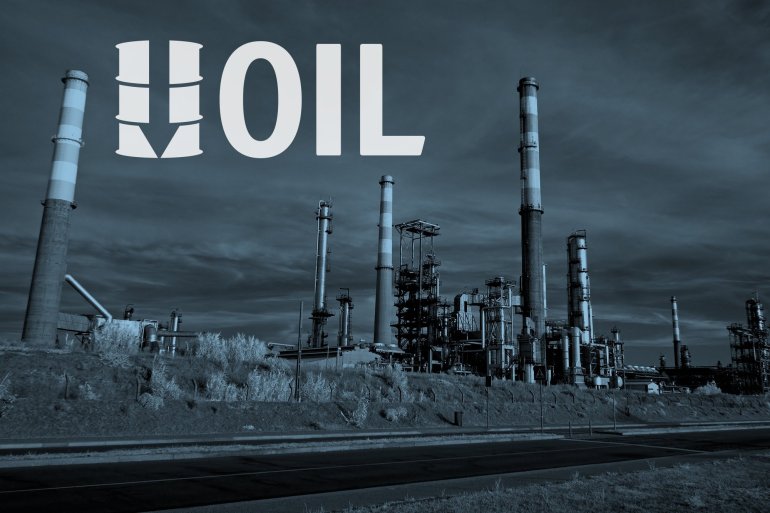- Nigeria, Others to Account for 53% of Fossil Fuel
Nigeria and other countries will account for 53 per cent of fossil fuel in use by 2040, Seplat Petroleum Development Company Plc Chief Executive Officer, Mr Austin Avuru, has said.
Fossil fuel, also known as hydrocarbon fuel is derived from oil and natural gas, is found in Nigeria, Ghana, South Africa, Algeria, Britain, United States, Germany, Canada and other countries of the world.
He spoke at a session at a workshop hosted by Petroleum Technology Association of Nigerian (PETAN) at the Offshore Technology Conference (OTC) in Houston Texas, United States. The workshop had “Global Energy Transformation – The Effect and Future of the African Oil Industry and Economy” as theme.
“Even up to 2040, fossil fuel will account for 53 per cent of the world energy demand. So, what we are seeing today is a gradual decline in the total contribution of fossil fuel to the energy mix over time. It is not an overnight elimination of fossil fuel,” he said.
Avuru noted that the global trend in energy supply would seem to suggest alarming. “The impression is generally given that the world is fighting a spirited battle to make sure that fossil fuel becomes irrelevant; and in that context, for countries like Nigeria that are endowed with fossil fuel, some people seem to be saying Nigeria is going to wake up one day and find out there is no use for its crude oil and natural gas.
“This impression also suggests that Nigeria will become a worthless country because its fossil fuel endowment will become completely useless to the world.”
As we move beyond 2030, 2040 and 2050, the energy mix will continue to be guided by availability, commercial consideration; which means, even for fossil fuel, countries will pay attention to cost because fossil fuel will have to compete the same way renewable will be able to compete,”Avuru said.
He explained that fossil fuel was always known to be a finite resource, which means that the world, even over the last 100 years, knew that it will come to a point where there will be a decline in the supply of fossil fuel as energy source.
“Those days in the 70s, there was a prediction by the International Energy Agency (IEA) that between 2012 and 2015 we would get to peak oil. Peak oil means that beyond that point, we will begin to see a decline in the world production. Thanks to technology. That date has been shifted forward. Peak oil will come. We have only shifted it forward because of technology.”
Today technology has enabled us to get crude oil and natural gas out of shale. Those of us who are geologists have always known that, there was crude oil in shale, but shale didn’t have the permeability to release it. What technology has done through cracking is to induce that permeability to release the crude oil and natural gas from shale. Thanks to technology because we have seen additional sources of crude oil and natural gas that moved backwards the date for peak oil.
“So, what we are seeing today is a very sensible scientific move by the world and by the advanced technologies of the world to start developing that alternative to fossil fuel because the day will come when there will be no fossil fuel,” he said.
Avuru indicated that fossil fuel which is, natural gas and crude which accounted for all our energy needs 20 years ago, has now declined to a level where renewable now accounts for 20 per cent of our energy needs.
He said energy needs keep increasing by three per cent on yearly. “If that 20 per cent accounted for by renewable energy were not there today, the demand for crude oil and natural gas would have driven the cost of crude oil to about $200 per barrel,” he said.
He continued: “Invariably, what we are seeing is a gradual transformation that should not be seen as a curse, but as solution that is being provided to the world that by the time we get to the point of decline in the supply of fossil fuel, there will be alternatives to fill the vacuum.”
When we see the demand for energy versus the supply, if we do nothing about oil and gas, we will see that the gap over a 20-year period will lead to a catastrophe. So, the point I am making and the point to take home is that there is no gang up by the world to make fossil fuel irrelevant. What the world is doing is to start in a timely fashion to develop the alternatives that must come when fossil fuel delivery in the world energy mix starts to decline.”

 Billionaire Watch3 weeks ago
Billionaire Watch3 weeks ago
 Startups4 weeks ago
Startups4 weeks ago
 News4 weeks ago
News4 weeks ago
 News4 weeks ago
News4 weeks ago
 Bitcoin4 weeks ago
Bitcoin4 weeks ago
 Naira4 weeks ago
Naira4 weeks ago
 Forex3 weeks ago
Forex3 weeks ago
 Treasury Bills4 weeks ago
Treasury Bills4 weeks ago

























